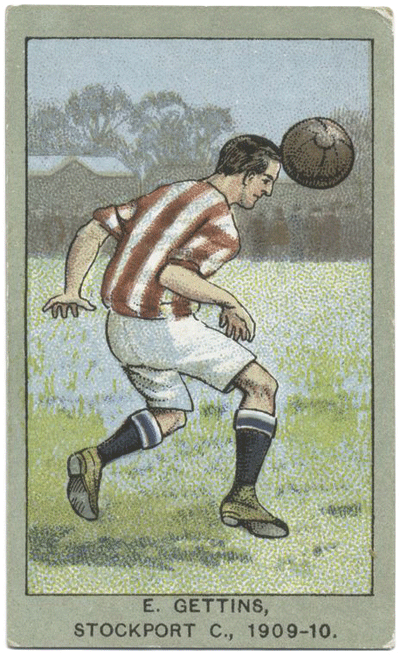All sports inspire passion—particularly when a team is winning. But soccer is different. The support is a commitment, win or lose. It’s different from other professional sports because its roots aren’t in a corporate experience. It is a working class game that anyone can play—all you need is a ball or, failing that, something to kick. Unlike hockey and Canadian football, it doesn’t require expensive equipment or a special place to play—just that ball, and a clear area, preferably (but not necessarily) a field.
Although soccer is now the world’s game, it traces its origins to England where it began as a contest between neighbouring villages and, later, between teams of factory workers. Its roots are local. It’s based on clubs that supporters joined because of their community.
Today, major teams are often owned by large business interests but they remain rooted in their communities. Teams in a professional league are not franchises, free to move at the whim of an owner as with professional sports in North America. In this sense, soccer is not just local, but tribal.
Occasionally we see the ugly side of this tribalism in violent incidents between supporters of different teams. But, at its best, that community connection produces a symbiotic relationship between fans and the team. Supporters feel that the team is theirs and they make a commitment to be there for the team, through thick and thin.

“From the beginning, Toronto FC was created and made by its fans. And it was magic.”
Gallaher Ltd. Cigarette Cards courtesy The New York Public Library Digital Collections
These facts mean that there can be a significant positive impact of a soccer team in a city like Toronto, where the majority of the population was born in another country. In a city that has welcomed the world, this sport can touch people and bring them together in a way no other sport—and, indeed, perhaps no other activity—can.
When the Toronto Football Club was proposed in 2005, it was clear that the potential was so significant that it was important for me, as mayor, to get behind the initiative. There was another opportunity, too.
Once the team and other governments had agreed that the stadium would be located at Exhibition Place, Toronto FC became an important boost to the struggling bars and restaurants in the adjacent King and Dufferin neighbourhood, which had struggled to survive on a predominantly lunchtime trade.
The committed supporters of the club were just the boost needed to help the neighbourhood go from struggling to thriving (it’s now part of the Liberty Village commercial area), with the subsequent rise in economic activity and jobs. This was a good benefit from the team, to be sure. But at its heart it was all about building community—a shared bond among Toronto’s diverse communities who were about to fall in love with Toronto’s own professional soccer team.
In the spring of 2007, that’s what happened to a huge number of Torontonians. They went head over heels for the Toronto FC the way Nick Hornby described in Fever Pitch (1992). “I fell in love with football as I was later to fall in love with women: suddenly, inexplicably, uncritically, giving no thought to the pain or disruption it would bring with it,” he wrote. Like Hornby, Torontonians had no idea of the consequences of what they were doing.
I was one of them. A season ticket holder before a player was even signed—I had played and supported soccer since as far back as I could remember as a boy in England. And here was our team. Finally. A Toronto team to love and support. In our house.
I’d supported other teams in other sports before—passionately—but soccer is different. It’s your club. It’s like you are an owner and not simply a fan. It’s a commitment. For good—and often for worse.
And that’s how thousands felt. From the beginning, Toronto FC was created and made by its fans. And it was magic. To be at BMO Field, win or lose, in 2007 to 2009, was an extraordinary experience like no other sporting event in Toronto. The supporters made their own fun, spontaneously singing the national anthem, for example, and never needed the odious demands from an automated scoreboard to “make noise.”
Yet the magic started to erode. A series of management changes soon meant that there were more coaches (known as managers in soccer) than years of existence.
Different philosophies brought by the parade of managers meant a revolving door of players as well. Eventually, unrequited love turned to anger and the team teetered on losing the support of the early years through its own ineptitude and incompetence.
I was one of those outraged when the club hired a president (Tim Payne) and then fired him less than a year into his tenure. I wrote a public letter to the club and returned the rest of my tickets for that season, saying that in a club desperate for stability, it had done the exact opposite. I was right. And wrong.
Payne’s successor, the brash American Tim Leiweke, a showman from Los Angeles, was backed by a board that invested millions and helped the team capture its potential, and eventually win the league, the MLS Cup, and everything else.
Joshua Kloke captures the feeling of those years, of being a Toronto FC supporter and living through a trajectory that kept getting worse, until it didn’t anymore. His tumbling style and excellent behind-the-scenes access combine to create a brilliant book that’s not only essential reading for Toronto FC supporters but would be a fantastic read for anyone wanting to understand why a sports team (or any common enterprise) can fail year after year, and what it takes to succeed.
Kloke details the events of this incredible run from the early days of a club operated without any plan or basic knowledge of professional soccer to one that became the model for success in Major League Soccer.
With Kloke’s unparalleled access to every major figure in the team’s development—every coach, manager (save one), and president—and his fluid writing style (you can actually feel him catching his breath, although not often), he has created a compelling look at a team that was given the immediate love of its supporters, and then almost threw it away.
It’s the perfect book for this club. For these fans. For this year, when the team’s play has dipped again but, true to form, the supporters have stayed loyal.
The devotees of this team, metaphorically and sometimes actually, have Toronto FC tattooed over their hearts. Kloke chronicles in unrelenting detail how an inexperienced management team almost lost that gift but won it back with the help of those same fans.
It’s not so much about the goals or the games. It’s about what people do not see: the decisions made by management and coaches that set the path for success and failure.
In this, the book is irresistible. And, as a Day One supporter, thank goodness it’s history.
David Miller, an immigrant from East Anglia in England, was mayor of Toronto from 2003 to 2010. He has held private, public, and academic positions and is the North American regional director for the C40 Cities Climate Leadership Group. He kicked a soccer ball the day he started to walk, and celebrates the 1978 FA Cup victory of his local team, Ipswich Town, every year. He’s seen almost every Toronto FC game.

